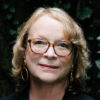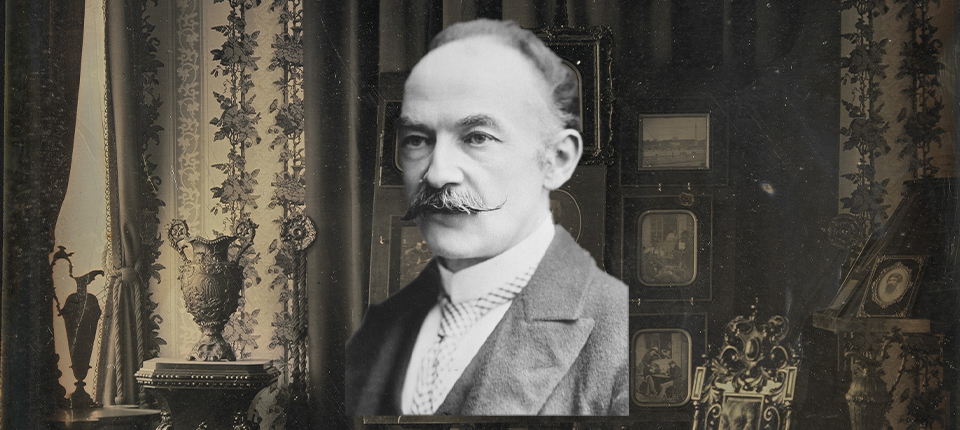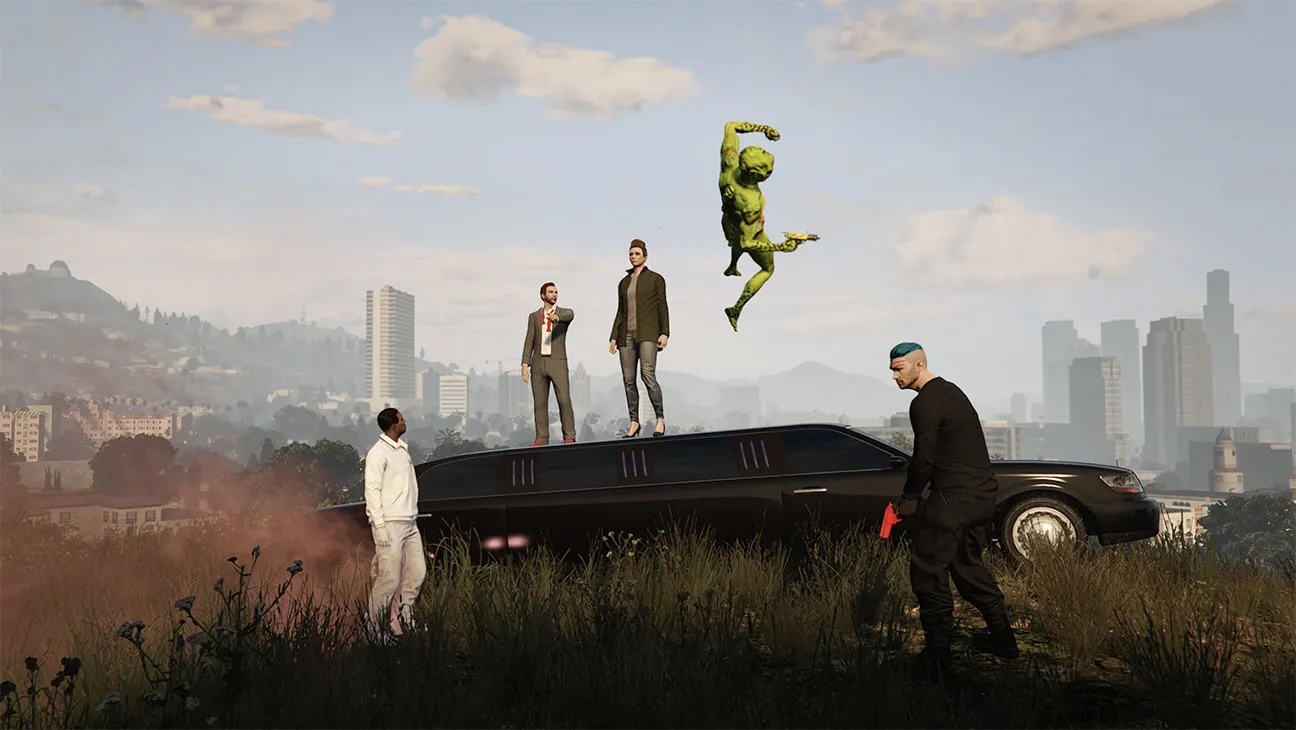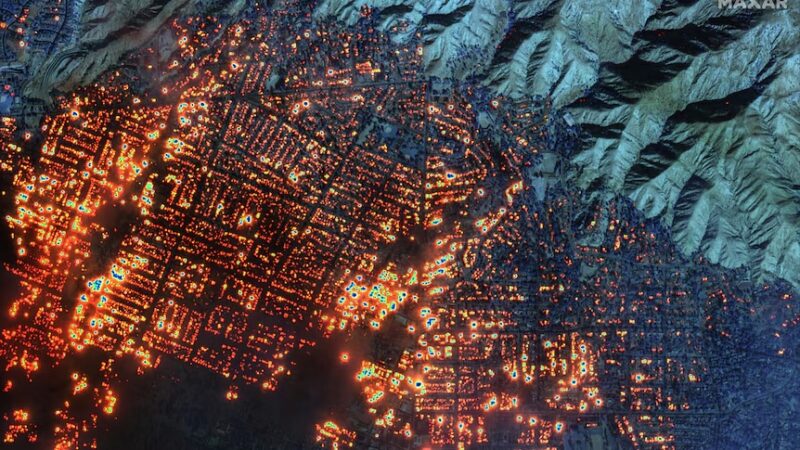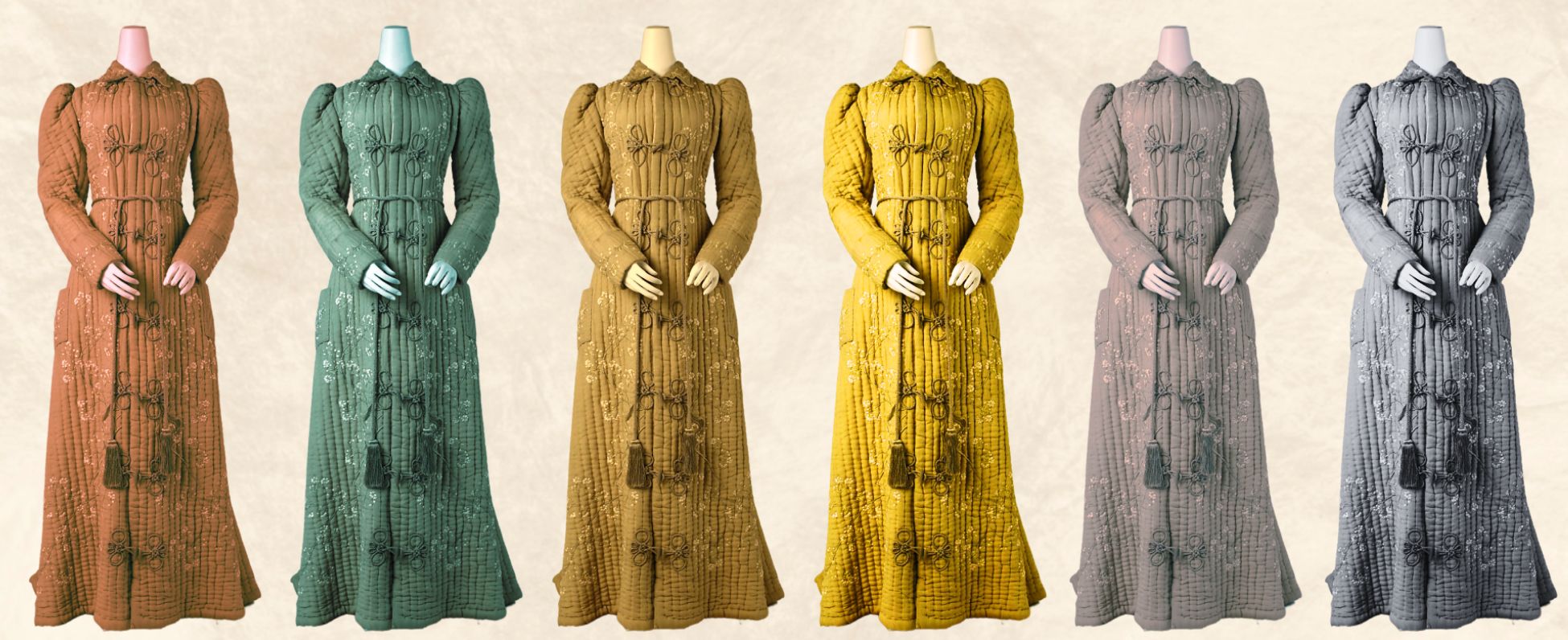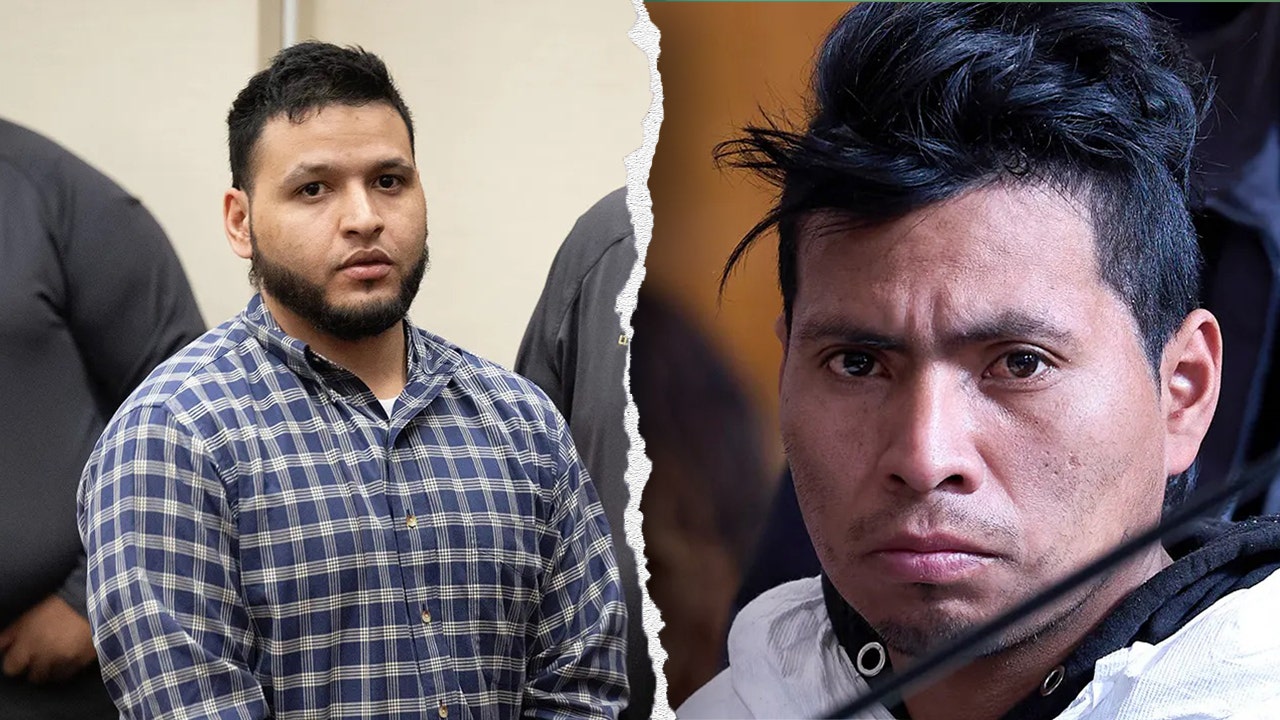Adam Ross’s second novel (after 2010’s Mr. Peanut) is a dense, intense coming-of-age story about Griffin, a teenager growing up on the Upper West Side, balancing his jobs as an actor and student, his real-life roles as a son and brother, his passion for wrestling and the women who enter his life, one by one, as if they are a cast that will lead him to what he hopes will be his one true love. What was the inspiration for the novel, and the title? “I wanted to write a novel that captured the essence of my childhood, one that rhymed with my life as a young adult,” Ross explains. Article continues after advertisement “Like Griffin, I was a child actor who appeared in movies and television programs, and performed in dramatic radio. What this meant was that, like Griffin, I often found myself the only child among a group of adults, in a professional setting with all the same associated perils and pitfalls and boundary-shattering behavior, as well as some remarkable instruction. Like Griffin, I was passionate about the sport of wrestling. Like Griffin, my parents both worked in the arts: my mother was a former professional dancer and my father was a Broadway musical performer and voiceover actor. So it happened that, like Griffin, I was often around legends such as Alan Jay Lerner, Leonard Bernstein, Jacques D’Amboise, and Josh Logan, to name just a few. “It’s unique enough, being raised in Manhattan, but especially in the 1980s, when, ironically for Griffin, who suffers from certain forms of destructive adult attention, our childhood had a Neverland quality. We were just so free. I like to tell people how my brother and I got to school on our own in first grade, taking public transit alone or riding our bikes across town, helmetless. I think about the wonders we witnessed in that unsupervised time. The near-death experiences we survived, the mayhem we caused. The New York of my memory, as gritty and dangerous as it was, was enchanting—in large part because of this freedom, one that is unimaginable to kids now and inconceivable for contemporary parents to grant. “It was in this world where we were at play.” Our email conversation crossed the continent as the holidays approached. Article continues after advertisement * Jane Ciabattari: How have these years of pandemic and turmoil affected your life and your work, the writing and launch of Playworld? Adam Ross: If by “turmoil” you’re talking about our country’s divisive political landscape, well, writing Playworld was, at times, a slightly uncanny experience, since it is set at the end of the Carter Administration and the beginning of the Reagan era. Ever since Reagan, the line between politics and entertainment has become even thinner and more porous. In both 2016 and 2024, Trump, with his combination of showmanship and stagecraft—gifts for straight talk and hucksterism—proved himself to be a direct descendant of our first actor president. Like Reagan, he has captured the American imagination. Like Reagan, his sloganeering is remarkable. Reagan’s, of course, was two-pronged: Government is not the solution to our problem; government is the problem. And: It’s morning in America. Like Reagan, Trump’s second term has been inaugurated by a rightward shift that hearkens back to the 1980 election, which was so decisive and surprising to many in the country and whose electoral map looked almost as monochromatic. Like Reagan, Trump came within millimeters of being assassinated. During both administrations, massive tax cuts were given to the rich. At a climactic moment in the novel, Reagan signs the Economic Tax Act of 1981, a bill that cut rates across the board by about 30%. The effect: Reagan began his administration with a national debt of $900 billion and ended his second term at a figure of $2.6 trillion. I could go on but maybe, in one the craziest ironies, I think it’s the wealth gap the Reagan administration’s policy inaugurated that led to the social and economic factors that have helped fuel MAGA populism. In a novel about the ways in which the adults cash a check on their children’s future—checks they have no interest in paying—I am here to tell you that the more things change, the more they stay the same. JC: Why set this novel during the 1980s with historic moments like the Carter-Reagan presidential campaigns, the heyday of Studio 54, and Dungeons & Dragons? What research was involved in setting these scenes? Article continues after advertisement AR: Because the early years of the 80’s were so consequential—socially, culturally, and politically. We have been having the same conversation about taxes and debt since then. It hasn’t really changed. Nor has the conversation, or argument, about the role of government. Because we were in proxy wars with Russia. To expand on my earlier answer, the novel’s hero, Griffin—a child actor in the age of the actor-president—is buffeted by the novel’s adults, who stand in for the political sphere. Gen X kids like me, who experienced what at times seemed like a complete lack of supervision in our lives, operated in a system of smaller parental governance for sure. At the same time, there is a hunger among overly-surveilled, helicoptered kids today for the kind of freedom their parents experienced in their own childhoods, and for the analog lifestyle. Some of the dangers we navigated as kids back then have led to a massive correction in how we, as adults, parent—an overcorrection, in my opinion, though I wouldn’t want my kids to go through what I did as a boy. I did a ton of research for the novel. I read numerous books on the Reagan era and I’ll name a few: The Triumph of Politics, The Age of Reagan, Rawhide Down. Books that tried to name the zeitgeist like The Culture of Narcissism. Books on John Hinckley, Jr. and Mark David Chapman. Books on the entertainment industry. Live from New York: The Complete, Uncensored History of Saturday Night Live. Books my parents were reading, like The Fifty-Minute Hour. In the end, however, you have to jettison all that knowledge, trust your protagonist’s worm’s eye view, and make it all up. I went to Studio 54 a lot, and for the first time when I was in the eighth grade. Although there are kids around Griffin who are going, he never gets there. And the book never really goes there either. But my word, you should’ve seen me back then, in my bandana, dancing on that nightclub’s speakers. JC: At fourteen, Griffin becomes enmeshed with Naomi Shah, a married friend of his parents, at a party his family’s psychologist is hosting. Later, he runs into her outside of the Julliard School, near his home, where her kids study ballet, and she parks her car waiting for them. It’s in her car that they have intimate conversations, ultimately being private together regularly on a dead-end street near the Hudson River. Griffin is naïve and captivated; Naomi is attracted to him but careful about how far they go. It’s a complicated relationship, which would have been seen in harsher light today. How did this plotline evolve? And how does it influence the growing interest Griffin has in Amanda, who attends a nearby school and captures his attention? AR: Like Mr. Kepplemen, Griffin’s abusive wrestling coach, the character of Naomi is another adult in the novel who, by her behavior, embodies the era’s get-mine-now ethos. Like Kepplemen, her interactions with Griffin, albeit destructive, are transacted in gray areas, which is not to say that both aren’t predatory, but it is to emphasize that both characters impart lessons to Griffin that are, in spite of their method of delivery, edifying, even foundational. Damaged people can teach us worthwhile things. And Naomi is helping him articulate his frustration about his lack of agency: He doesn’t want to be an actor, but he wants the things acting provides, and she connects him with his conflicted feelings by giving him the attention he desperately needs. But it comes with a terrible price tag and, just like the era’s costs, arrives well beyond the novel’s frame. Do things go any better for Griffin when he falls in love with Amanda, someone his own age? Nope. Why? Because his tutelage in intimacy is more of a miseducation. It’s sad to think about all the things we’re taught as normal that we have to spend the rest of our lives unlearning. Article continues after advertisement JC: Griffin appears on an episode of Allen Funt’s Candid Camera in which he’s paired with Muhammad Ali. When Ali learns his name, he says, “The mythological creature…Guardian of great treasures. What’re you protecting, boy?’” What led you to choose that name? What does it say about Griffin’s ongoing quest in this novel? AR: Griffin’s full name is Griffin Hurt. His father’s given name is Hertzberg, and he changes it when he becomes an actor like so many other Jewish actors have (Cary Grant, Lauren Bacall, Harrison Ford, to name a few). A part of Griffin’s name, then, points to the theme of assimilation, one which his father suffers in the novel. His name is also a nod to one of my favorite actors of that era, William Hurt, who starred in one of my most beloved, hokey, and mind-bending movies of 1980, the year the novel takes place, which is Altered States, and concerns a scientist who goes through all sorts of drug-induced, physical and psychological devolutions and regressions in a quest for love. Another favorite movie of that era is Martin Scorsese’s After Hours, which stars Griffin Dunne and is about a guy who lives in uptown Manhattan and, over the course of one dark night, goes through all sorts of perils and struggles while trying to get home. There is, of course, a fantasy theme in the novel—Griffin’s a Dungeons & Dragons enthusiast—and he is in transformation over the course of this seminal year in his life, not only learning what to protect and what he values. Because he is also deformed by these events, Griffin becomes monstrous in certain ways. Griffins aren’t bad monsters, in my opinion. I know that when I played D&D, I was always on the lookout for one I might train as a winged steed. Little known but geeky fact: the Greek god Apollo rode a gryphon. JC: Griffin’s father is an actor, too. His dreams have not materialized, but his voice has become familiar from advertisements (“It’s 10 p.m. Do you know where your children are?”). Then he gets a part in a new Broadway show, directed by Jose Ferrer, with music by Hershey Kay, who orchestrated the music for A Chorus Line, and income to help the family (Griffin’s acting job helps pay for his private school tuition). Meanwhile, Griffin gets a part in Take Two, a film whose cast includes Diane Lane, Jill Clayburgh, and Shelley Duvall. His dad is both competitive and proud. What’s the source of this nuanced father-son relationship? AR: Griffin’s relationship with his father is absolutely rooted in autobiography, but my father’s career was bigger and more accomplished than Shel Hurt’s. And my father certainly wasn’t competitive with me. I had the pleasure of performing with him on several episodes of NBC’s hour-long, dramatic radio program The Eternal Light. Also, on the level of raw talent, I have nowhere near the abilities he had. He attended Julliard. He’s a remarkable singer and pianist. He starred in all sorts of productions, and if you follow me on Instagram (@adamrosswriter), there’s a great clip of him as The Commander in Tom Jones’s and Harvey Schmidt’s off-Broadway masterpiece Philemon. With Griffin and his father, I’m really playing with the idea of what it means to get the role of a lifetime and what it means to choose your own role in life, which often requires closing the door on certain (sometimes seemingly remarkable) opportunities. JC: Griffin’s Candid Camera appearance leads to roles in a late seventies paranoid thriller The Talon Effect and then the Saturday morning TV show The Nuclear Family, which he shoots during summers. In the second half of the novel, he gets a major role in film. What research/real life experience shaped the narrative of his acting career? Article continues after advertisement AR: The Candid Camera production team regularly came to my public elementary school and I, like Griffin, was hip to the game but never made it on the show, dammit. And I was also on an NBC television series that ran for one season called Hot Hero Sandwich, in which I played, among other roles, a character named Captain Hero. We shot that at 30 Rock, at the 8-H studio, the home of Saturday Night Live. The cool part: this was produced in 1978, when the original SNL cast was around, so I’d have run-ins with all of those folks. And we had the same production crew too. JC: I lived for many years on Seventh-fifth Street between Central Park West and Columbus, and had a house in Sag Harbor, so I recognize many of the locations in Playworld. How were you able to create such detailed and lush descriptions of places like Lincoln Towers, where Griffin and his actor father and scholarly mother and younger brother live; the Boyd Prep where Griffin is a lackadaisical student, restaurants like Lenge near Lincoln Center (now closed), the Museum of Natural History, where Griffin made many visits as a boy, the Temple of Dendur at the Met, the Quogue Beach Club, and so many more? AR: Lots of rewriting. And then cutting and rewriting. I’ll add that the novel’s granular attention to conjuring a city that no longer exists is part of its commitment to worldbuilding, to evocation. You don’t achieve this by stuffing a novel with the era’s stuff so much as you try to capture the place’s feel, certain shades of light. If that sounds arty-farty, it is. And it isn’t. Because certain views no longer exist in Manhattan that did when I was a child there. The city itself is constantly molting, getting torn down and being built up. I’m trying to recapture a very particular kind of wonder one experienced back then. JC: Griffin’s mother has an intriguing connection to the iconic Joseph Pilates. Where did that originate? AR: My mother was, in fact, an instruction model for him. JC: What are you working on now/next? AR: My day job is the editor of the Sewanee Review. We just closed the spring issue, which features, among other contributors, some remarkable fiction from a young writer new to our pages named Daniela Garvue, a short story by Jean Chen Ho, and newly translated work by Isaac Bashevis Singer…. JC: [interrupts] Speaking of Isaac Singer. He lived in the Belnord, at 86th and Broadway, where they now film Murders in the Building. AR: …as well as poetry from Gabrielle Bates and a craft essay by Sidik Fofana. As soon as I return from touring, we’ll be editing the summer issue. Being the editor of the Sewanee Review makes drafting a novel much easier, because no matter how bad things are going on the page, my nine-to-five job is collaborating with some of the best writers in America. Everyone reading this should subscribe at www.thesewaneereview.com. __________________________________ Playworld by Adam Ross is available from Alfred A. Knopf, an imprint of Knopf Doubleday Publishing Group, a division of Penguin Random House, LLC.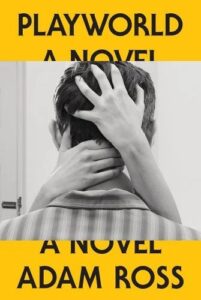

 By Literary Hub | Created at 2025-01-07 10:01:54 | Updated at 2025-01-12 02:12:17
4 days ago
By Literary Hub | Created at 2025-01-07 10:01:54 | Updated at 2025-01-12 02:12:17
4 days ago
